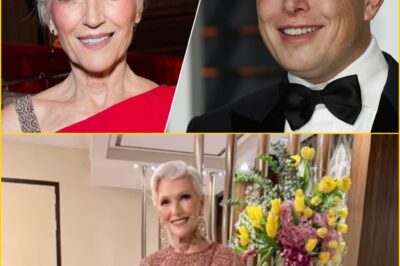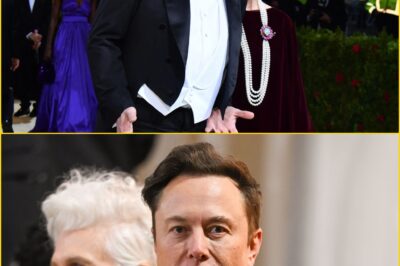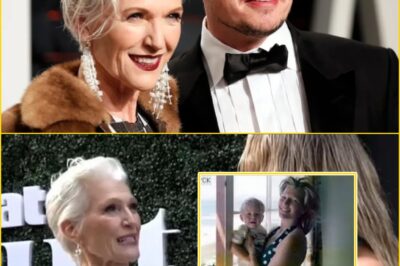Every word from Martin Frizell seems to carry the weight of a world he never expected to live in. He once held together public figures, ran television sets, and edited morning shows. Now, each morning brings a quieter battle — one he fights not behind a camera, but in the echoing hallways of his own heart.
“Every day, I lose a little more of her — and there’s nothing I can do.”
That’s how he began when he finally broke his silence about Fiona Phillips — the woman he married in Las Vegas in 1997, the journalist whose voice once filled the airwaves. Now, that voice is slipping through the cracks.

The Love Story Before the Diagnosis
Fiona Phillips wasn’t just a familiar face on television — she was a force of nature. Clever, witty, tireless, and deeply connected to the stories she told. Martin Frizell, her husband and longtime editor, watched her thrive in a world of deadlines, bright lights, and high expectations.
Yet, around the mid-2010s, things began to shift. They started drifting into what he later described as living “separate lives.” Long silences filled rooms. Small arguments over things they once laughed about. He assumed it was stress, menopause, or exhaustion. Not Alzheimer’s.
In 2022, Fiona was diagnosed with early-onset Alzheimer’s at just 61 — the same merciless disease that had claimed both her parents. The recognition was devastating but late. In her memoir Remember When: My Life With Alzheimer’s, Fiona and Martin give readers a rare, joint narrative: her struggle with memory, speech, identity — and his unspoken agony as her closest witness and caretaker.
The Goodbyes That Happen While She’s Still Here
“Work became my escape,” Martin confessed. While cameras rolled elsewhere, their home transformed into a place of slow, daily farewells. The letters and laughter that once tied them together began to fray.
He revealed one moment that haunts him: during a short taxi ride to the doctor, Fiona asked him 72 times where they were going. Each repetition was a crack in their shared reality. He said many days now are nothing but “bad or wretched.”
On Newsnight, he admitted:
“I used to say good days and bad days — now I just say bad days or wretched days.” The Independent
He described how she sometimes looks at him like a stranger. Like the husband she once knew has become a stranger in his own home. The irony is devastating.
Painful Honesty & the Cruelty of Understanding
Friends say Fiona still has flashes of clarity. She recognizes something is wrong, and moments of lucidity cut deeper than confusion. She feels her own fading. That awareness — the very ability to grasp one’s decline — can be among the cruelest parts of Alzheimer’s.
Martin doesn’t shy from the darker truths. He says he once wished Fiona had cancer — because at least then there would be treatments, hope, a pathway forward. Alzheimer’s offers none of that. It offers only incremental loss, memory by memory.
In her book, Fiona describes disconnection with the world. In one passage, she says her brain fog felt like looking through a double-glazed pane at life happening outside her reach. The Guardian
A Legacy Already Changing the Conversation
Martin has stepped down from his position as editor of This Morning to care for her full-time. He’s spoken openly about how underfunded and under-recognised dementia and Alzheimer’s care really are. His plea is that no one else — no spouse, no child — should feel they are left alone to shoulder this kind of sorrow.
Fiona’s and Martin’s story is not just personal — it is a spotlight on millions walking through similar shadows. Their openness challenges the stigma of Alzheimer’s, particularly when it strikes early, when someone is still in the prime of life.
And perhaps that is the legacy Fiona Phillips will leave: not a story of decline, but a testament — that love can persist even when memory does not. That one can still be whole, in heart, even as parts are stolen away.
Martin’s breaking of his silence is more than confession — it’s a call to us all, to listen, to remember, and to fight harder for those lost inside their own minds.
News
Rylan’s Breaking Point: After Years of Smiles, He Explodes Over Backlash — And Threatens to Expose What He Says Must Be Brought Down
When a public figure decides to abandon the polished façade, often what emerges is far more raw and revealing than…
From Candy on the Corner to Commanding the Cosmos: How Elon Musk’s Childhood Hustle Became the Fuel for a Trillion-Dollar Empire
The story begins not in a boardroom, but on a dusty street corner — where a young boy handed out…
From Billion-Dollar Mansions to a $50,000 Tiny Home: Why Elon Musk Traded Luxury for a Life Measured in Square Feet, Not Status
At first glance, it sounds like satire: the world’s richest man — worth over $333 billion — living in a…
She Raised the World’s Richest Man — But Her Own Story Is Even More Extraordinary: 5 Things You Never Knew About Maye Musk
On her birthday, Maye Musk wrote a social media post thanking Elon Musk for sending her ‘beautiful flowers’. Here’s some…
‘He’s Not Just a Billionaire, He’s My Son’: Elon Musk’s Mother Shares Emotional Message About the Man Behind SpaceX, Tesla, and a Lifetime of Genius
Elon Musk’s mother, Maye Musk, sets the record straight regarding her son’s social media activity. The author and veteran model,…
‘I Can’t Explain Elon’: Elon Musk’s Mother Says Her Son Operates on a Different Level — Calling Him a True Genius Unlike Anyone Else in the Family
Most parents like to think their kid is a genius — but Maye Musk might actually have the bragging rights. Her son, Elon…
End of content
No more pages to load












